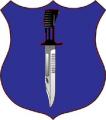True and I take your point on charisma. But the Arabs love the dramatic and the grand gesture even if it is a complete myth. They go so far as to create myth in order to prove its truth: I once had a senior Egyptian officer give me a two hour staff ride (battlefield tour) on a fight in Sinai that did not happen. They eve n wrote a chapter in a key book on the 73 War about that "battle." They left out that chapter in the English version. As for SOI, those are essentially tribal militias and as such relay on traditional leadership models.
Yes it can and it has been done. I have seen it work in Rwanda first hand. But the Rwandans did it themselves; they studied other armies and fought inside other armies, learning as they went.Steve: Thing is, though, it can be done. Look at the Bacevich, et al. monograph on El Salvador. Something of the same situation--no NCO tradition. We kind of crammed it down their throat, and it eventually worked out.
I'm not as familiar with the Arab context but it sure would seem that the lightbulb would go one in someone's head and they would say, "Let's see--no Arab state has won a major war for several centuries. Maybe it might be time to consider some innovation."
In the case of the Middle East, some units have done quite well. The SARNG did well at Kahfji in 1991--with a lot of Marine support. But it has not been performance centered on NCO competency. That to me is the breakthrough that as yet has not happened; when they see their NCO competency as the strength of their military, they will be getting somewhere.
Tom






 The Sunni insurgency seemed relatively decentralized and relied a lot on what I'll call "local initiatives" or "independent action." Do you think that the Lions of Iraq will be more effective at whatever level they have that compares to NCO? Will that have any influence on the Iraqi Army?
The Sunni insurgency seemed relatively decentralized and relied a lot on what I'll call "local initiatives" or "independent action." Do you think that the Lions of Iraq will be more effective at whatever level they have that compares to NCO? Will that have any influence on the Iraqi Army?


 ). We always talk about what we can do for the country being advised, but we rarely talk about what the advisory effort does for us (the US Military). If we want our Soldiers/Marines to be able to function in these new hybrid wars, then what better way for them to learn some cultural understanding than by going out and working with foreign soldiers in their own environment. You can't learn every culture but you can learn how to adapt quickly to other cultures. Additionally, advising provides a warfare education to our people by allowing them to see what other militaries do and what types of conflict/adversaries that they must face. If you want worldly soldiers, then you must send them out into the world and you want to do this before the war starts. This has been the exclusive province of SF and SOF, but this needs to change (or continue to change) so that the conventional military can reap these benefits. I do like the USMC FMTUs in that they're using regular combat MOSs to fill these slots. These guys can take what they learn and bring it back to the fleet.
). We always talk about what we can do for the country being advised, but we rarely talk about what the advisory effort does for us (the US Military). If we want our Soldiers/Marines to be able to function in these new hybrid wars, then what better way for them to learn some cultural understanding than by going out and working with foreign soldiers in their own environment. You can't learn every culture but you can learn how to adapt quickly to other cultures. Additionally, advising provides a warfare education to our people by allowing them to see what other militaries do and what types of conflict/adversaries that they must face. If you want worldly soldiers, then you must send them out into the world and you want to do this before the war starts. This has been the exclusive province of SF and SOF, but this needs to change (or continue to change) so that the conventional military can reap these benefits. I do like the USMC FMTUs in that they're using regular combat MOSs to fill these slots. These guys can take what they learn and bring it back to the fleet. 


Bookmarks